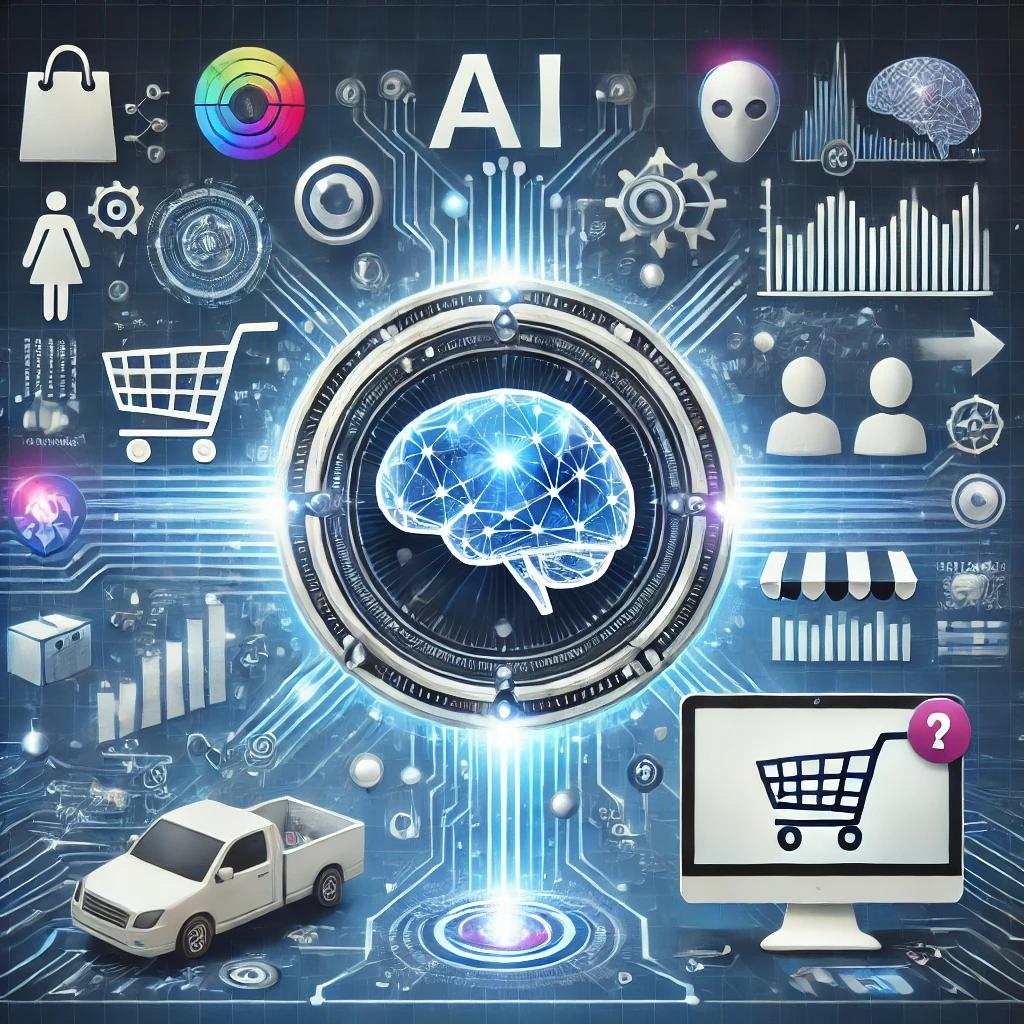
How AI Can Transform Your E-commerce Business
In the rapidly evolving world of e-commerce, staying ahead of the competition requires innovation, agility, and a customer-first mindset. Artificial Intelligence (AI) has emerged as a transformative technology that can help e-commerce businesses achieve these goals and much more. Whether you’re a small business owner or managing a large online retail operation, AI offers tools and insights to optimize every aspect of your business. Here’s how:
1. Personalized Customer Experiences AI enables hyper-personalization by analyzing customer data and behavior in real-time. By understanding what your customers want, AI can: - Recommend products tailored to individual preferences. - Curate personalized marketing emails and promotions. - Enhance website navigation by showing relevant categories and items.
For example, Amazon’s recommendation engine, powered by AI, contributes significantly to its sales by suggesting items based on browsing history and past purchases. Tools like **Dynamic Yield** or **Optimizely** can help smaller businesses implement similar personalization features.
2.Intelligent Chatbots and Virtual Assistants AI-driven chatbots can handle customer queries 24/7, providing instant support and reducing the workload on human customer service teams. These chatbots can: - Answer frequently asked questions. - Assist with order tracking and returns. - Upsell and cross-sell products during conversations.
Applications like Zendesk AI Chatbot and Intercom are widely used to enhance customer service capabilities.
3. Optimized Inventory Management AI helps e-commerce businesses manage inventory efficiently by analyzing sales patterns and predicting future demand. This ensures that: - Popular items are always in stock. - Overstocking and understocking are minimized. - Seasonal trends and sudden spikes in demand are anticipated.
Tools such as TradeGecko or Inventory Planner use AI to optimize inventory management for businesses of all sizes.
4. Dynamic Pricing Strategies Pricing is a critical factor in e-commerce success. AI algorithms analyze market trends, competitor pricing, and customer behavior to suggest optimal pricing strategies. With dynamic pricing, you can: - Maximize profit margins. - Stay competitive without sacrificing revenue. - Offer discounts intelligently to boost sales during slow periods.
Solutions like Prisync and Dynamic Pricing AI provide businesses with tools to implement smart pricing strategies.
5. Enhanced Marketing Campaigns AI transforms digital marketing by targeting the right audience with the right message at the right time. Using AI, you can: - Segment audiences based on detailed insights. - Automate and optimize ad campaigns. - Track and improve customer acquisition costs (CAC).
Platforms like Google Ads and Facebook Ads Manager already leverage AI to help businesses run highly effective campaigns. Additional tools like HubSpot and Marketo can further refine your marketing strategies.
6. Fraud Detection and Prevention AI systems can detect unusual patterns in transactions, flagging potentially fraudulent activities before they impact your business. This is especially critical in e-commerce, where online payments are the norm. AI can: - Protect sensitive customer data. - Prevent chargeback fraud. - Build trust with your customer base.
Solutions like Signifyd and Riskified are popular for implementing fraud detection and prevention mechanisms.
7. Streamlined Supply Chain Operations AI improves supply chain efficiency by analyzing logistics data and identifying bottlenecks. This results in: - Faster delivery times. - Reduced shipping costs. - Improved order accuracy.
Applications like Llamasoft and ClearMetal leverage AI to streamline supply chain operations, ensuring timely deliveries and cost efficiency.
8. Visual Search and Voice Commerce AI is changing how customers shop by introducing innovative technologies like visual search and voice commerce. With visual search, customers can upload images to find similar products. Voice commerce, powered by AI assistants like Alexa and Google Assistant, allows customers to: - Search for products. - Place orders hands-free. - Receive personalized shopping recommendations.
Platforms like Pinterest Lens and Syte offer visual search capabilities, while voice commerce integrations can be built using Amazon Alexa Skills Kit or Google Actions.
9. Improved Customer Retention AI helps you identify at-risk customers by analyzing churn patterns. You can proactively re-engage these customers with: - Exclusive offers and discounts. - Loyalty programs tailored to their preferences. - Personalized outreach through email or SMS.
Tools like Retention Science and Klaviyo use AI to enhance customer retention strategies.
10. Data-Driven Decision Making AI doesn’t just analyze data; it provides actionable insights. By visualizing trends and predicting outcomes, AI empowers e-commerce businesses to make smarter decisions about: - Product launches. - Market expansion. - Operational improvements.
Applications like Tableau and Power BI incorporate AI-driven analytics to help businesses visualize and interpret their data effectively.